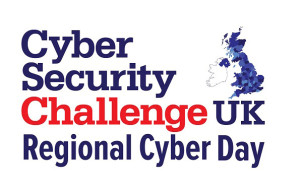
Analogies Project contributors tell personal stories at Northumbria regional event about how, as non-technologists, they raise cyber awareness and investment
London – 9th October 2014 – The Analogies Project, the content portal that shares non-technology stories and parallels to break down barriers and promote cyber understanding and investment, is supporting CyberSecurity ChallengeUK’s regional cyber day in Northumbria to promote careers for women in cyber security whether or not they are studying computer science and technology.
Today there are more than one million Information Security roles globally unfilled*. Attracting young people from all disciplines into cyber security has never been more critical as threats increase in frequency and sophistication. The Cyber Security Challenge UK was set up in 2010 to address the lack of cyber security skills in today’s workforce. Through a series of national online and face-to-face competitions, learning initiatives and networking events, the Challenge aims to inspire and enable more people in the UK to become cyber security professionals.
As a part of the Challenge’s activity, it has been working with various organisations across the country to host regional cyber days. Supported by government and academia, the goal of these local events is to boost the recruitment necessary to cement the UK’s global market position in cyber security products and services. Each event will have a different focus: at this particular event in Northumbria, young women are the target group.
Two Analogies Project contributors will join the speakers and panelists explaining why and how they are involved in cyber security. Juliet Armstrong, a 17 year old A level student, will be seen on video and join a panel discussion. She will explain how she combines her understanding of the cyber threat and her knowledge of historical and political events to put cyber security issues into context.
Jenny Radcliffe, another contributor from outside the information security industry , will also be seen on video explaining how the skills of “people hacking”, using psychological methods and “Social Engineering”, is a huge threat to organisations of all sizes. Her contributions to The Analogies Project often focus on how awareness and knowledge of these methods and tactics can be invaluable tools for security professionals of all types, in the prevention of these attacks.
“People are easier to crack than tech. I want to raise awareness of this and reinforce defences against this type of attack. In over a decade of training and consultancy the one thing I have learned is that people, technical and non-technical, remember stories more than anything else. This is why I share these stories through initiatives such as The Analogies Project and the UK CyberSecurity Challenge”, Jenny Radcliffe, Social Engineer and People Hacker.
“In this, Cyber Security Awareness Month, we are delighted that two of our female contributors from outside the industry have been invited by UK Cybersecurity Challenge to share their approach to breaking down cyber communications barriers. Greater understanding will perhaps encourage more people to enter this fascinating and business critical area. Analogies and stories are proven to have greater impact than fear, facts or finger-wagging and The Analogies Project’s goal is to use this approach to change attitudes and behaviour to make organisations and society more secure”, Bruce Hallas, founder of The Analogies Project.
*CISCO 2014 Annual Security Report
About The Analogies Project
Founded in 2011 by Bruce Hallas, The Analogies Project (TAP) is a multi-lingual content portal designed to ease the barriers between those with deep specialist information security knowledge and everyone else. TAP does this by inviting contributors both from within and outside the Cyber industry to draw parallels between the challenges and importance of information security with everyday life experiences; telling stories in a language people already understand using politics, art, history, theatre, sport, science and music analogies rather than talking about technology. As people and their behavior are still the most difficult aspect of cyber security to predict and control, TAP aims to increase understanding and change attitudes and behaviour to make organisations and society more secure by sharing memorable, relevant or entertaining stories.




